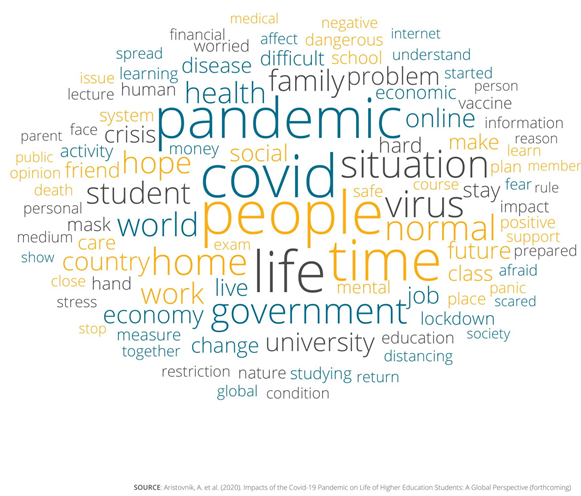Rita Molnar promotes teachers’ awareness on co-operative social learning.
Investigating the impact of the transformational but forced change caused by the pandemic on education has received considerable and exponentially growing attention in recent months.
While some early studies reported about performance improvement due to the continuity of learning, recent research across countries have pointed out that most students suffer from learning loss due to the poor adoption of online learning at institutional and individual levels (student, teacher) as well.
Not surprisingly, several studies have found an association between socioeconomic background and adaptation success. This must be a medium and long term agenda item for policymakers to counterpoise social inequalities in access to education and support educational system in virtual learning environment improvement. Similarly, in the short to medium term, institutions are required to revise their teaching programmes to align their educational objectives with blending online and classroom teaching beyond simply catching up with needs in digital infrastructure and skills development.
However, while technical obstacles need to be addressed at higher levels, adaptive problems should not be overlooked by those in power to take actions and more responsibility even if it requires a frame-breaking change in beliefs, approaches, and teaching style fuelled by more attention to student voice and awareness of the importance of co-operative, live, face-to-face learning and teaching. Active listening to student voice can start from assessing one’s own improvement needs to manage adaptive and meet expectations about teaching style (digital skills, communication of expectations, quality of resources), workload planning, and availability for support based on organization-wide survey results or global findings.
Moreover, openness and eagerness to follow neuroscience studies on the impact of brain-to-brain synchrony on memory retention can help to pay more attention to face-to-face interactions between student-student and student-teacher. Such mutuality in brains coupling in conversations activates the reward system and the mentalizing network in real-time, peer-to-peer cooperation and learning context. Therefore, facilitating active participation needed peer interactions (online and as course assignments) counterbalances the usual tendency to be a passive, silent observer of online teaching and aids learning efficacy.
However, expecting real-time feedback on the emotional engagement of students via face expression recognition intelligence to adjust teaching seems more futuristic than realistic considering the current digitalisation readiness of most educational systems globally. Nonetheless, expanding online teaching beyond the boundaries of providing power point presentations by consciously using the camera for facial expressions and gestures (and being aware of its impact on reward system and cognitive processes) might be a reasonable step towards student experience improvement.
Taking such responsibility for improving the online learning environment consciously and demonstrating efforts in compensating its inhibiting effect on learning efficacy can enhance not only student experience in HE during these volatile, uncertain, complex, and ambiguous times but also their motivation, engagement, and mental well-being. Ultimately, this will contribute to academic achievement.
Rita Molnar is a PhD Researcher in Professional Practice: Psychological Perspectives at Salomons Institute for Applied Psychology.
 Expert comment
Expert comment Emma Grafton-Williams
Emma Grafton-Williams 1874
1874


